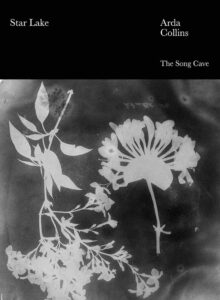I need to play this small blue saxophone.
It’s been moldering in my cousin’s basement,
transposed in my mind
as my childhood basement,
for many years. It was gnawed and spit in
by at least seven Armenian children,
my cousins, who, like me, sprang from the women
driven from their homes
while their husbands and fathers were seized and murdered. Over time
we appeared. Every note
is like a pothole when I think of the day
I couldn’t control myself
and blew in it. I felt a passing knowledge
something else would happen.
Then thunder and a rainstorm.
It was like opening a book.
All the stories I read took place
in versions of my old house. Since then,
I’ve lived in a number of houses
and have been inside so many others,
who can remember them? There are houses
I’ve seen in movies, and suggestions
of houses in drawings and plays. “In the Hall of the Mountain King”
is about a house, and The Nutcracker
takes place in a house
that leads to a forest in an endless
kingdom filled with sweets, flowers, and melancholy spirits. This morning,
I started reading a novel. The setting
is a rocky shore. Inside
the stone house where the protagonist lives
there is a version
of a kitchen that belonged to my childhood friend
when her family lived in a Victorian manse. I continue
to invoke this place,
mostly the neutral side driveway entrance
outside the living room porch. Woods
and a cemetery beyond them
lead to a small lawn around the house
that is part of a larger lawn
bordered by pine trees
with a somber, military bearing.
It’s the initial staging area
for confusing memories. I recognized
a weeknight mood of their kitchen
in the story about the rocky coast: “This reminds you
of that,” I thought. Then the protagonist stood at the wooden counter
in the kitchen where I live now.
“She’s chopping vegetables, like you,”
my mind said. All day my mind
worked, showing me pictures
of feelings it had retrieved
from the world
and from inside of me. “Who are you?”
I asked. My mind showed me
the small wooded area beyond my backyard
where mud and leaves marked the tracks
of a seasonal stream.
Then there was the grass
in March, the ground frozen; dormant
growth in the trees; rocks locked away
inside the earth; sky after sky,
this one
gray, another light blue,
a rainy October night,
February twilight,
a time I thought the sun was loud. This poem
is called “Wuthering Heights”
because the house in that novel is an ongoing
contraption of consciousness,
time, and space. Now can we
be together?
__________________________________

Excerpted from Star Lake by Arda Collins, available via The Song Cave.
Arda Collins
Arda Collins is the author of It Is Daylight (2009), which was awarded the Yale Series of Younger Poets Prize. Her work has appeared in The New Yorker, The American Poetry Review, A Public Space, Colorado Review, jubilat, and elsewhere. She is a recipient of the Sarton Award in Poetry from the American Academy of Arts and Sciences.













